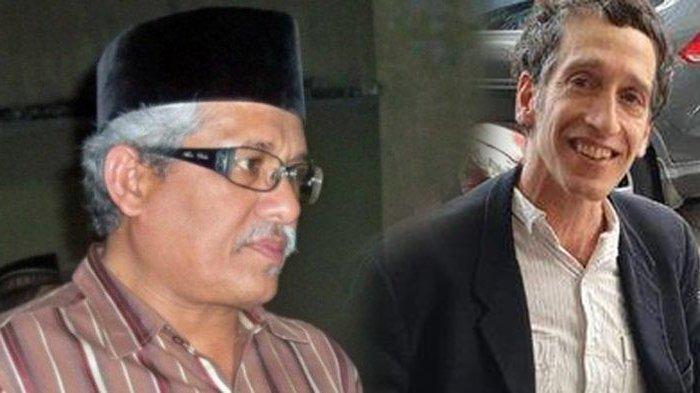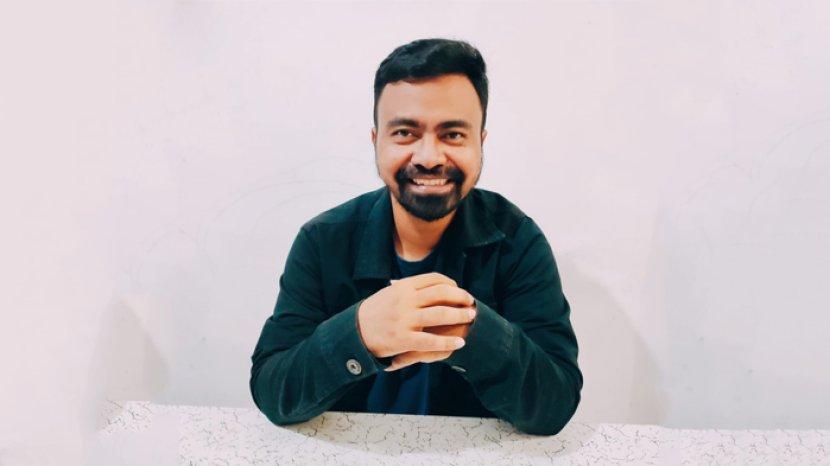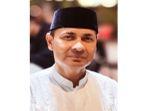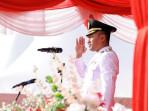Opini
Remembrance of Nurdin Abdurrahman: A Thoughtful, Fearless Warrior for Aceh's Freedom
I had come there to report on the growing independence struggle for the San Francisco Chronicle.
PENGANTAR
Kabar duka meninggalnya Tgk Nurdin Abdurrahman, mantan Bupati Bireuen Periode 2007-2012, Senin (8/6/2020) subuh lalu, menyebar hingga ke Amerika Serikat.
Jurnalis dan pembuat film asal Amerika, William Nessen pun ikut menuliskan kenangannya tentang sosok Nurdin AR, intelektual dan mantan juru runding GAM yang pernah lama tinggal di Australia.
Kenangan William Nessen tentang sosok Nurdin AR ini dikirim ke Harian Serambi Indonesia dan Serambinews.com oleh Munawarliza Zainal, mantan Wali Kota Sabang yang juga intelektual serta mantan juru runding GAM.
Artikel itu dikirim dalam dua versi, tulisan asli William Nessen dalam bahasa Inggris, serta versi bahasa Indonesia yang sudah diterjemahkan oleh intelektual perempuan GAM, Shadia Marhaban.
Artikel versi bahasa Indonesia telah ditayangkan di Harian Serambi Indonesia dan Serambinews.com, edisi Sabtu 13 Juni 2020.
Berikut kami turunkan juga tulisan asli William Nessen dalam bahasa Inggris.
Untuk tulisan versi Bahasa Indonesia bisa dibaca di SINI.
Remembrance of Nurdin Abdurrahman: A Thoughtful, Fearless Warrior for Aceh's Freedom
By William Nessen*)
I met Nurdin within a few days of my first journey to Aceh back in 2001.
I had come there to report on the growing independence struggle for the San Francisco Chronicle.
I had already spent several years in Indonesia and its most troubled regions.
I had been in Jakarta through the protests in 1998 and the fall of Suharto.
And I had been in East Timor for many months when protests started days after Suharto’s fall and grew and kept growing.
And I was back there again as the Indonesian military-backed militia began their violence.
I had also spent more than a year in West Papua on several trips, walking for hundreds of kilometers with the OPM and traveling by boat with them and writing and taking photographs under editor-approved pseudonyms.
During those years I had met a lot of wonderful, brave people and seen enough civilians killed and heard enough stories of torture and death to prepare me for the years that I would end up spending in Aceh.
On my ride from the airport into Banda my first day, I recall being surprised at how much more economically developed and better-off at least that part of Aceh was than the unremitting deprivation of East Timor and West Papua.
But I soon learned that it was a place of similar terror.
Nurdin was my first - and remained my best - guide to the independence politics and human rights situation in his beloved but battered Aceh, and I took an instant liking to him.
Part of it was that my Indonesian was still pretty bad, and he spoke a beautiful English.
Another part of why I liked him was that he was himself a very curious person, always trying to learn more and dig deeper, and it made him a teacher respectful of political complexities.
He never lectured or tried to convince me of something no matter how strongly he believed it.
Although passionate about the cause of Aceh’s independence, he was able to separate himself from it and present what turned out to be a balanced and pretty objective picture of the events swirling around us.
The other thing that quickly impressed me about Nurdin was that he was not afraid – even though he was the head of an organization gathering information about torture by the Indonesian military and police.
And this was at a moment when the military was forcefully reasserting its power and hold over Aceh, or at least its hold in the urban areas.
• Kisah Nurdin Abdurrahman dan Mobil Rental
That first day we met, I still recall that it was morning and there was a nice breeze blowing and Nurdin insisted that we sit outside in a pleasant little park under a big tree but very visible to anyone driving or walking past.
On subsequent meetings, we would meet and then at some point he would drive me to different parts of the capital and its environs on his motorbike.
All the other Acehnese I was meeting back then were far more cautious and would only meet with me inside somewhere away from prying eyes.
When I suggested to Nurdin that it was perhaps dangerous for him to be seen so much and so openly with me, a foreign journalist, he responded in his ever-calm, quiet voice that he was only as free as he acted.
And, he said, he was determined to be free.
It took some time before he told me in detail about the terribly rough years of unfreedom that he’d gone through.
He had spent some years in prison as a supporter of Aceh Merdeka in the 1980s.
The military had tortured him, attaching electrical wires to the most sensitive parts of his body and breaking his toes and fingers with a hammer and heavy chair legs and pulling out his toenails and fingernails with pliers.
It had permanently damaged his health.
I had heard similar stories in West Papua and East Timor and had seen photos taken by the Indonesian military of their torture. But his stories still took my breath away.
The other thing that struck me about Nurdin was that he would talk about his own experience and that of others without a tear ever coming to his eye.
It wasn’t that he lacked feelings or empathy.
Indeed, he was one of the gentlest, most empathetic people I ever met and he would tell me of the hardships that one person or another or one entire village or other had suffered the previous week at the hands of the Indonesian military.
But he was constitutionally upbeat even in the midst of very bad things going on.
I, meanwhile, found myself often near tears or in tears for what seemed weeks or even months on end in the several years I spent in Aceh, living in the rural areas of the province and seeing the war up close.
While other Acehnese gave me a hard time about crying so easily, Nurdin never did.
Instead, he would often put his hand on my shoulder and tell me that it let the Acehnese know that I cared deeply about them.
Anyway, Nurdin and I became good friends, and whenever I was in Banda in those years before I was jailed and kicked out of the country we would meet up.
Every once in a while, when he assumed I was not watching him, I would catch a glimpse of what seemed a look of disorientation of some kind pass across his face.
I never wanted to embarrass him by asking what was going through his mind, but I came to believe that I was getting a glimpse of some very painful scars on his psyche from his time in prison and from the stress of his work in Aceh under many years of military rule.
Later, we were also together during the peace talks in Helsinki, where he was one of GAM’s negotiators and I had the honor of briefly serving as an advisor to the GAM negotiating team before they decided, at least for the foreseeable future, to give up the fight for independence.
With the tsunami, the Acehnese had just experienced too much death all at once.
• Putra Sulung Imami Shalat Jenazah Tgk Nurdin Abdurrahman, Dikebumikan di Samping Makam Istrinya
• Inmemoriam Nurdin Abdul Rahman: Ia Tulis Puisi dalam “Rumoh Glap” pada Kertas Bungkus Nasi
In the years since the conflict ended, I remain banned by the Indonesian government from entering Indonesia and Aceh.
But Nurdin and I stayed in touch by phone, email and text.
I don’t think we saw each other except for a few days in Australia.
He was elected as Bupati of Bireuen and then was jailed for some improprieties.
Afterwards, he struggled financially.
But through the ups, he never got high-and-mighty and acted like he was some big, important leader.
And through the downs, he never was anyone but that unfailingly fearless, thoughtful, kind-hearted man I met almost twenty years earlier who had dedicated his life to Aceh’s freedom.
When I received the news a couple of mornings ago that Nurdin had died, I found myself in tears, of course.
I knew it was not Nurdin’s style, but I knew also that he would know what it meant: that I respected him and loved him and the freedom he was able to find even in the most difficult times.(*)














